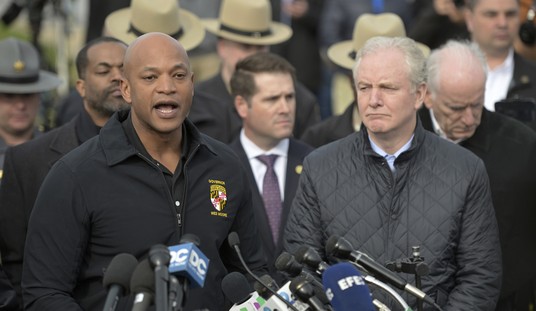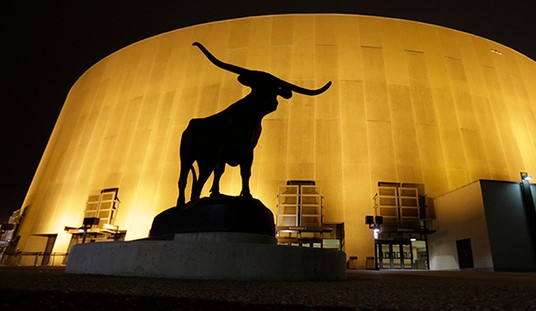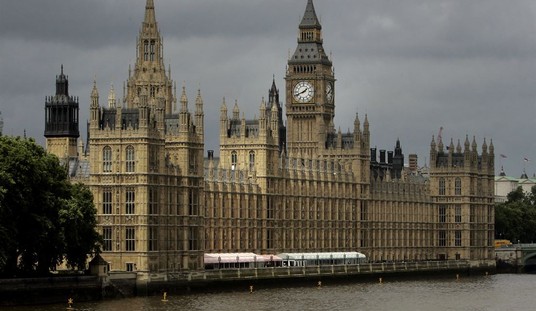Police in Ferguson, Missouri, once charged a man with destruction of property for bleeding on their uniforms while four of them allegedly beat him.
“On and/or about the 20th day of Sept. 20, 2009 at or near 222 S. Florissant within the corporate limits of Ferguson, Missouri, the above named defendant did then and there unlawfully commit the offense of ‘property damage’ to wit did transfer blood to the uniform,” reads the charge sheet.
The address is the headquarters of the Ferguson Police Department, where a 52-year-old welder named Henry Davis was taken in the predawn hours on that date. He had been arrested for an outstanding warrant that proved to actually be for another man of the same surname, but a different middle name and Social Security number.
“I said, ‘I told you guys it wasn’t me,’” Davis later testified.
St. Louis, like nearly everywhere else in the United States, has grown more multicultural (though less quickly than many other places). Immigrants to the area have lately come from Bosnia, India and China. But events in Ferguson demonstrate the paradox of American diversity: An increasingly multicultural nation remains deeply divided by race and class. There are many more friendships and marriages between white and minority Americans (about one in 12 marriages are interracial ) — but at the same time racially charged suspicion and anger persists among millions. And a broad perception of our own racial enlightenment and acceptance has created a different form of isolation — a self-satisfaction that obscures or masks deep social divisions…
In a sense, it is a different country. As the United States has grown more diverse and prosperous over the past several decades, the economic and social isolation of some communities has only increased. This is not entirely a function of race. Many in the white working class have also felt segregated from the promise of America. But problems are concentrated among African American males, who have disproportionately low levels of workforce participation, disproportionately high levels of incarceration and little sympathetic attention from the broader society.
This is not an excuse or even an explanation for any specific incident. It is just a context. African American males are in a long-term, economic and social crisis for which there are many economic and social explanations. But their most likely interactions with public authority are a squad car or a demand for child support.
These actions can’t be the only outreach, the main interaction, our society has with young black men.
About a 15-minute drive from the Ferguson protest that, by now, feels more like a block party, in the more upscale St. Louis suburb of Olivette, there’s a new strip mall with a barbecue joint and a Starbucks and an e-cigarette store. On a mild Thursday evening in August, people sat around tables, sipping coffee, sipping beer, dabbing barbecue sauce off their fingers…
Here in Olivette, the people I spoke to showed little sympathy for Michael Brown, or the protesters…
“When they kill each other, we never hear about it,” one of the Starbucks women said. This, she meant, was a good thing. “When it’s black-on-black violence, we never hear about it.”
I asked why she thought that was.
“Because, basically, they hate whites!” her friend chimed in. “Prejudice, reverse prejudice. Prejudice goes both ways.”
Via YouGov.

For many conservatives, especially those of us living in nice, comfy suburbs, it’s hard to apply the “power corrupts” doctrine to law enforcement because we’ve never seen corrupted enforcers of the law. We’ve never been wrongly arrested. We’ve never witnessed our children put in jail based on the false reports of police officers. We’ve never seen our neighbors beaten or tazed without cause. And in the extremely unlikely scenario that a police officer drove into our neighborhood and murdered our unarmed friend in cold blood, we cannot possibly fathom a scenario where the justice system wouldn’t be on our side and where that police officer wouldn’t spend the rest of his life in jail. Therefore Brown must have been a violent, gang-sign flashing thug, foolish enough to think he could swipe a cop’s weapon because, in our minds, there’s no conceivable way that a police officer would gun down an innocent man.
But just because we don’t see the corruption of law enforcement in our own lives doesn’t mean that it doesn’t exist. Police brutality is not the Bogeyman. It’s not an urban legend witnessed by none but told by many. It’s not a myth created by a primitive tribe that is too simple to understand the true source of the brokenness in its communities. Black people believe in police brutality for the same reason they believe in rain—because they’ve felt it…
Conservatives are frequently, and unfairly, labeled as racists. Does it make you a racist to believe that a young black man named Michael Brown assaulted a police officer, tried to steal his weapon and then again displayed violent intent when that police officer was pointing the same gun at him? Not if you draw that conclusion based on the facts. But until enough evidence is available to reveal which implausible explanation for the events of August 9 is true, perhaps that label might fit those who insist on making judgments against Brown simply because they refuse to walk a mile in the shoes of those who have had drastically different experiences with the police. For those of us who have never experienced law enforcement corrupted by power, basic human decency should require that we try to understand and consider the perspective of those who have before we insist that their account of Brown’s death is somehow less believable than ours.
Conservatives have long lamented the buildup of armaments and stockpiling of bullets by the Department of Homeland Security. The media has mostly treated these conservative concerns with derision. Suddenly, last week, when reporters were detained by the police in Ferguson, MO, the media had to pay attention to the militarization of the police and overkill by local police forces.
Given what happened in Ferguson, the community had every right to be angry. The police bungled their handling of the matter, became very defensive, and behaved more like a paramilitary unit than a police force. Property damage and violence by the citizenry cannot be excused, but is also the result of a community seeing those who are to protect and serve instead suiting up and playing soldier…
The odds of a young white man being shot by the police in similar circumstances to Michael Brown are not as high as those of a young black man. But we should not need to have a young white man shot and killed for the rest of the nation to pay attention to the issue.
Just because Michael Brown may not look like you should not immediately serve as an excuse to ignore the issues involved. Likewise, a media suddenly invested in stories of government overreach should not be dismissive of stories of bureaucrats, not just police, abusing the public trust.
Daryl Parks, an attorney for the family, acknowledged at a news conference at Ferguson police headquarters that “it appears to be him” after Police Chief Thomas Jackson released the security video showing a young man they claimed to be Brown grabbing a clerk in the convenience store. He said the family believed that release of the video was a “strategic” move “aimed at denigrating their son.”
“That was character assassination,” he said.
Via the Dana Show.
Via the Blaze.








Join the conversation as a VIP Member